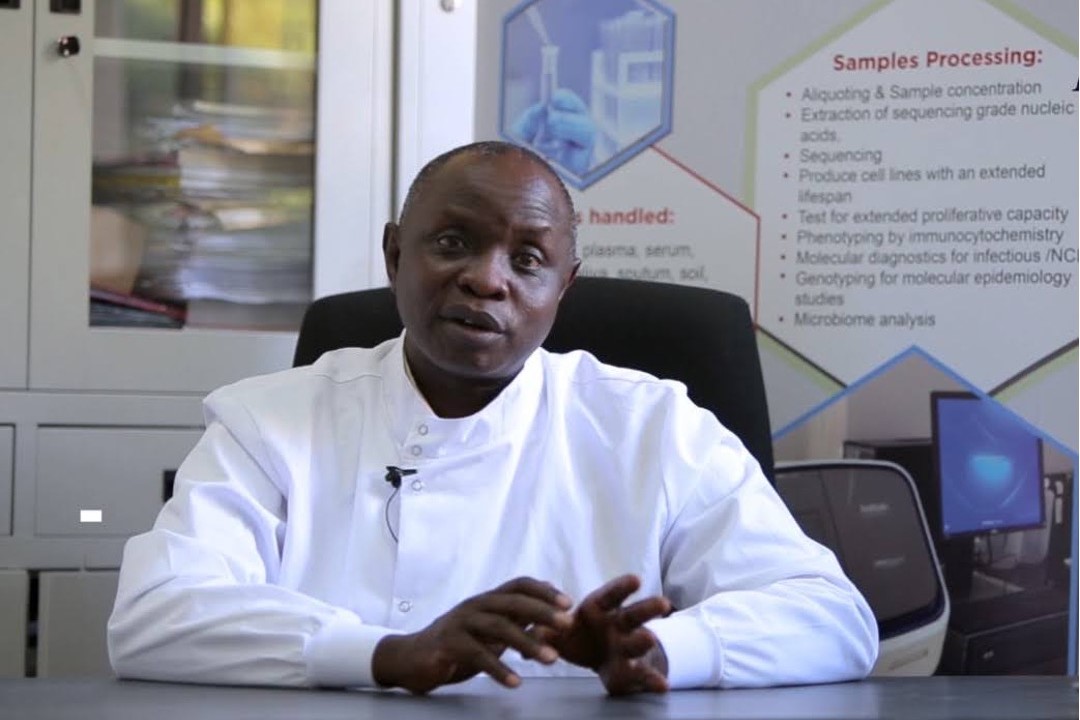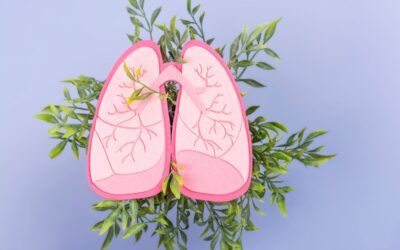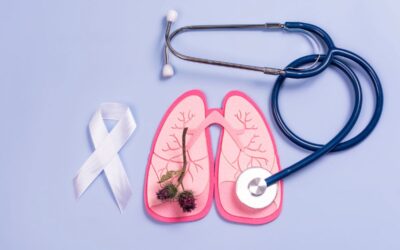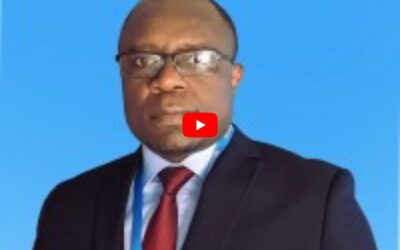Innovations in TB Healthcare
Moses Joloba: Dialogues on Academic Advancement, Laboratory Leadership, and Trailblazing Innovations in TB Healthcare
Moses Joloba: Dialogues on Academic Advancement, Laboratory Leadership, and Trailblazing Innovations in TB Healthcare
In a recent interview with Ms. Daphne Martin, the TB RICC Program Manager, Dr. Moses Joloba, a renowned scientist in Uganda’s medical and research community and a RePORT International Principal Investigator, shared insights into his remarkable journey in the field of tuberculosis (TB) research.
Interest in tuberculosis and early influences
From his early days as a physician in Uganda to leading the National TB Reference Laboratory, now a Supra National Reference Laboratory, Dr. Joloba has played a pivotal role in shaping TB research and services in the region. Dr. Joloba’s journey began with a strong foundation as a physician in Uganda, where he developed a keen interest in Microbiology to comprehend the intricacies of disease pathogenesis.
When I was at Case Western Reserve University, doing my master’s in microbiology, my peers influenced me a great deal. My main supervisor was working on streptococcus in our laboratory and the committee and the people who were sponsoring me were also interested in Mycobacterium tuberculosis. So, I was torn between those two, and I ended up doing a master’s thesis on both diseases, Streptococcus pneumoniae, and Mycobacterium tuberculosis. When I returned to Uganda, I worked on both diseases but since TB was a compelling endemic causing a lot of problems, I made my career choice.
One of the key highlights of Dr. Joloba’s career is his leadership in revitalizing the National TB Reference Laboratory in Kampala. Tasked with transforming a facility in disrepair, he successfully obtained international accreditation, expanded the team’s capacity from 5 to 80 members, and extended support to 26 countries in East, Central, and South Africa. His academic journey also saw him rise from an assistant lecturer to a distinguished professor, contributing to the training of numerous students and Ph.D candidates which he considers one of his greatest achievements. He believes in knowledge transfer and passing on the baton to the younger generation. Throughout his academic and research endeavors, Dr. Joloba acknowledged the guidance of mentors such as Professor Jerrold Ellner, Professor Henry Boom, Professor Christopher Whalen, Professor Kathleen Eisenach, Dr. Armand Van Deun, Professor Michael Jacobs, Professor Nelson Sewankambo and Dr Baingana Baingi. Dr. Joloba also continues to be inspired by his students as each day is a new learning experience in his classrooms.
Impacting Uganda’s health systems
Dr. Joloba’s impact extends beyond the laboratory, as evidenced by the establishment of the Makerere University Biomedical Research Center. This center has played a crucial role in responding to health crises, including the COVID-19 pandemic and leading ebola studies in Uganda.
In discussing breakthroughs, Dr. Joloba outlined several achievements, including enhanced laboratory capacity, the development of an in-house information system from scratch, and the establishment of a biobank serving multiple African regions. He emphasized the cultural shift within the team to embrace the importance of partnerships for technology transfer. The opportunities for capacity building also played a crucial role in building the infrastructure for the local communities.
Despite facing bureaucratic challenges such as delayed procurements, approvals, and a shortage of qualified personnel, Dr. Joloba’s determination, collaborative spirit, and problem-solving attitude allowed him to overcome these obstacles. “Focusing on the end goal rather than getting bogged down by processes, coupled with strong public support, facilitated the progress of our initiatives. I believe joining forces with partners has been one of the greatest boons that helped navigate through these obstacles.”
Lessons learned, community services, and the future
Expressing optimism about Uganda’s TB research future, Dr. Joloba takes pride in the country’s internationally accredited research laboratories and digitized diagnosis systems. He discussed the importance of mentorship and setting high career goals especially for students in the TB research world. “TB is a preventable disease, it is a curable disease, and yet it continues to claim lives. With all the technologies, we can optimize what we have and improve things.”
Dr. Joloba expressed aspirations for his center to develop products and services addressing local problems. “Serving the community is something very close to my heart. In fact, when I came here, there was one laboratory, and no way for people to access lab services across the country. I immediately thought of the role of the Post Office. There were buses coming every day from all over the country, some of them twice a day. So, I created a system where the samples were carried by the buses to the post office which helped us to collect samples.” This innovation paid off and he was able to set higher standards of sample sharing.
To Dr. Joloba, RePORT International presents itself as an excellent opportunity for research alliances. His experience in Goa at the RePORT International Annual Meeting in September 2023 was highly positive, revealing a wealth of available information. He reflected by saying, “I am impressed that India had progressed in terms of basic sciences and would like to have more discussions to exchange ideas. They probably have similar conditions like us.” He feels the amalgamation of these insights and the use of samples could prove valuable in assessing the effectiveness of various programs.
Dr. Joloba’s dream is to package a product for communities to have access to and find ways to address the needs of the population. This will entail working closely with stakeholders such as local government to manufacture diagnostic kits that can be made available to people in dire need. He says, “The COVID-19 pandemic helped our nation to understand its limitations. So, it is now time to build a more sustainable infrastructure that will address the flow of resources. With the available resources, it will be possible to achieve greater dreams of ending the toll of TB.”
The addition of RePORT Uganda to RePORT International adds great value because of the sentinel research and training programs that include Uganda: the TB Research Unit, FEND-TB, Halting TB Transmission, and the Global Infectious Diseases Training Program to name a few. Currently, Case Western Reserve, Harvard University, Johns Hopkins, Rutgers, UCSF, Yale, and the Unversity of Amsterdam have collaborative research programs in Uganda.
Dr. Moses Joloba is the perfect leader for RePORT International at this juncture. He has held a number of prestigious positions at Makerere University most recently Dean of Biomedical Sciences in the College of Health Sciences and currently CEO of the Makerere University Biomedical Research Center. He also directs the regional Referral TB laboratory in Uganda, designated by the WHO as a supranational laboratory. Moses also has taken the lead on the national response to other infectious diseases such as Ebola and COVID-19. As a collaborator, friend and admirer I thank Moses for his efforts in making RePORT Uganda a reality – and thank him for the interview!
What's new
Global Fight Against TB
Voices from the Global Fight Against TBReflections on World TB Day: Voices from the Global Fight Against TBReflections on World TB DayEach year, on March 24, we recognize World TB Day. This annual event commemorates the date in 1882 when Robert Koch announced his...
Collaborative Research Innovation
Fostering Collaborative Research and Innovation in TBThe 13th RePORT India Annual Meeting held from 3-5 April 2024, at the National Institute of Immunology (NII) in New Delhi.The 13th RePORT India Annual Meeting was held from 3-5 April 2024, at the National Institute...
Ending TB
Ending TBEnding TB: The Critical Role of Determinants




